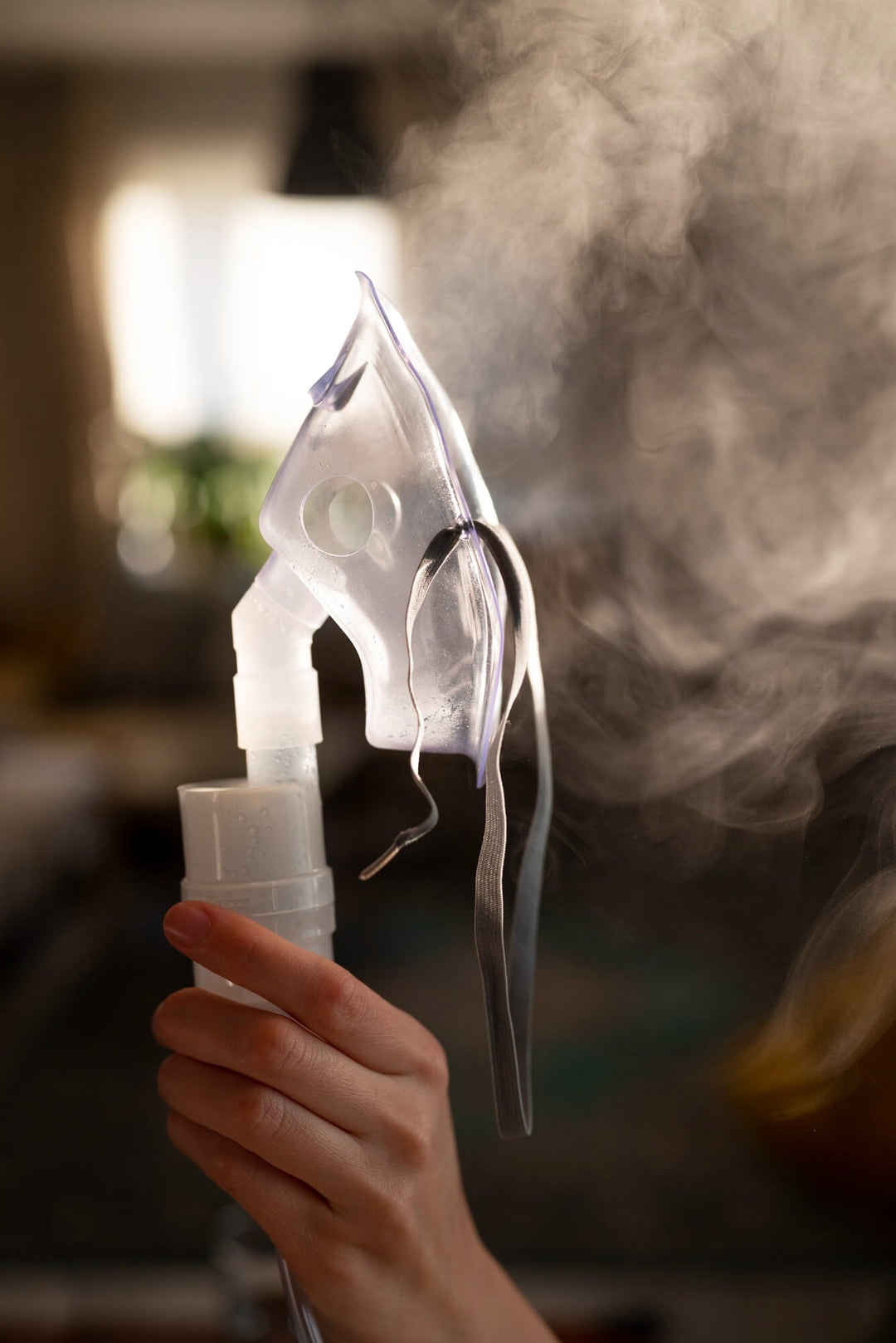Nitrous oxide - sounds like a harmless laughing fit, but can have quite serious consequences. Originally used in medicine, it is now freely available in cream capsules and is increasingly being abused as a party drug. What many people don't realise is that just a few deep puffs can really throw the body off balance. From brief moments of intoxication to dangerous nerve damage - the risks are real. But when does it become really dangerous? What is the legal situation? And what happens if you overdo it? Get the answers here.
How nitrous oxide works
Nitrous oxide (nitrous oxide, N₂O) primarily affects the central nervous system. As soon as it is inhaled, it displaces oxygen in the lungs and quickly enters the bloodstream. The effects set in within a few seconds and usually only last a few minutes.
Typical effects are:
- Euphoria and relaxation - often accompanied by a feeling of lightness
- Distorted perception - sounds and images can be perceived more intensely or distorted
- Short alteration of consciousness - a kind of "dream state" or slight hallucinations
- Laughing fits - hence the name "laughing gas"
As the effects wear off quickly, nitrous oxide is often inhaled several times in succession, which significantly increases the risks.

Cuttings View all

How dangerous is nitrous oxide?
Nitrous oxide may seem harmless at first glance, but there are considerable risks - especially if used improperly or regularly.
The dangers depend primarily on the dose and frequency of use:
- Acute risks: Oxygen deficiency can lead to fainting, dizziness or even asphyxiation.
- Long-term consequences: Regular use can damage the nervous system and cause irreversible damage.
- Risk of accidents: The short-term intoxication can lead to coordination disorders - dangerous in road traffic or during activities such as swimming.
- Mixed consumption: In combination with alcohol or other drugs, the risk of unconsciousness or severe poisoning increases.
It is particularly dangerous to inhale nitrous oxide directly from capsules, as the gas is extremely cold and can cause frostbite in the mouth, throat or lungs.
What side effects can nitrous oxide cause?
Nitrous oxide may seem like a harmless fun drug at first glance, but the effects on the body can be considerable - and not just in the short term. Immediately after inhalation, there is often a feeling of euphoria, accompanied by dizziness or a slight tingling sensation in the limbs. However, unpleasant side effects can follow just as quickly as the high sets in. Many people report headaches, nausea or a strong feeling of pressure in the head.
The main problem is the lack of oxygen caused by inhaling the gas. If you inhale too deeply or use it too often in succession, you risk suddenly fainting. This is particularly dangerous if you are standing or in an environment where falls can have serious consequences - for example on the street or near water.
While occasional use usually only causes short-term discomfort, regular use can have more serious consequences. Nitrous oxide blocks the absorption of vitamin B12, an essential nutrient for the nervous system. If this vitamin is missing over a long period of time, it can lead to numbness, muscle weakness and even permanent nerve damage. Some sufferers report tingling in the fingers or feet, which eventually turns into complete numbness. In severe cases, paralysis or gait disorders are possible.
Regular consumption can also have a psychological effect. Some users experience depressive moods or concentration problems after the nitrous oxide high. There are also reports of people who enjoy the brief high so much that they return to it again and again and develop a kind of psychological dependency.
Nitrous oxide is particularly dangerous when consumed in combination with other substances. Alcohol or tranquillisers can intensify the effects and increase the risk of unconsciousness or breathing problems. In addition, the gas is extremely cold when inhaled directly from a capsule - which can lead to frostbite in the mouth, throat and lungs.
In short, the side effects of laughing gas range from harmless headaches to severe neurological damage. Anyone who consumes it should be aware of the possible consequences - because the risks are often underestimated.</p
Seeds View all
Where is nitrous oxide legal?
The legal situation regarding nitrous oxide varies from country to country. In many countries, it is legally available as it is used in the food and medical industries. However, some countries have taken measures against its misuse:
Germany: Nitrous oxide is not classified as a narcotic, but its sale for intoxication purposes may fall under the Medicines Act.
Netherlands: Nitrous oxide has been banned as a narcotic since 2023.
UK: From 2023, nitrous oxide will fall under the ban on psychoactive substances.
France & Belgium: Sale to minors is prohibited, abuse can be prosecuted.
Since nitrous oxide is often sold in cream capsules, it is difficult to regulate in many countries. However, the laws are becoming increasingly stricter.</p

Medical treatment for nitrous oxide damage
Fast help is crucial for acute nitrous oxide poisoning:
Fresh air or oxygen supply - to compensate for the lack of oxygen in the body
Lay in a stable lateral position - if unconscious, to avoid the risk of suffocation
Dial emergency number (112) - if breathing problems or severe side effects occur
Long-term damage, especially nerve damage caused by vitamin B12 deficiency, can be treated with high-dose vitamin B12 injections. However, a complete cure is not always possible for severe neurological impairments.</p
Conclusion
Nitrous oxide may seem harmless, but it harbours considerable dangers - especially when used frequently. Acute oxygen deficiency effects, long-term damage to the nervous system and increasing legal regulation make it clear that this supposedly harmless "fun" can have serious consequences. Anyone who consumes nitrous oxide should be aware of the risks - and if in doubt, it is better to avoid it.</p



















